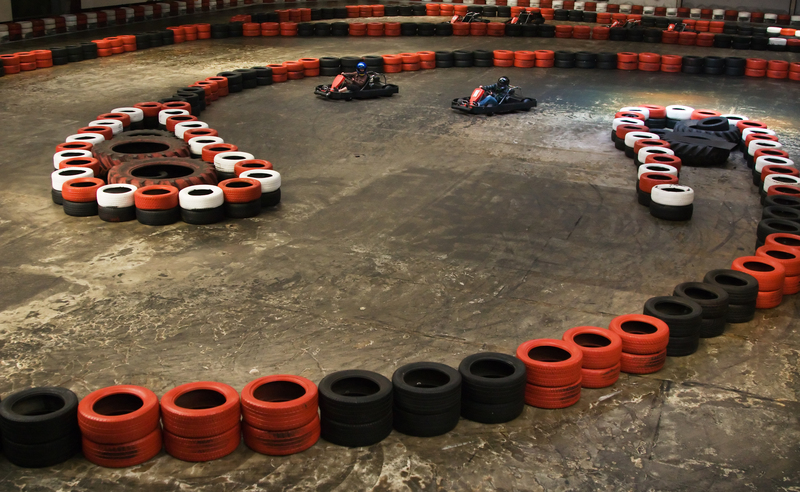Hard Rubbish 101: Effective Disposal Methods and Tips
Dealing with hard rubbish is an ongoing challenge for households across the world. Whether you're moving, renovating, or simply decluttering, understanding how to dispose of bulky waste effectively is crucial. In this article, we will explore various methods and tips for effective hard rubbish disposal to ensure you manage your waste in an environmentally friendly and efficient manner.
What is Hard Rubbish?
Hard rubbish, also known as bulk waste or bulky items, encompasses a variety of large household items that are typically too big for standard waste bins. These items can include furniture, mattresses, appliances, and electronic waste. Proper disposal of these items is essential to reduce landfill impact and promote recycling efforts.

Effective Disposal Methods for Hard Rubbish
Council Collection Services
Many local councils offer scheduled collection services for hard rubbish. These services are usually free or involve a nominal fee. To utilize this service:
- Check your local council's website for collection dates and guidelines.
- Prepare your hard rubbish items according to council specifications.
- Place items in an accessible location for pickup.
Taking advantage of council collections not only helps you dispose of hard rubbish efficiently but also ensures compliance with local regulations.
Recycling Facilities
Recycling is a crucial step in keeping hard rubbish out of landfills. Many recycling facilities accept specific bulky items:
- Electronic waste (e-waste): Special facilities handle and recycle electronics to recover valuable materials.
- Metals and scrap: Salvage yards take metal furniture and appliances for recycling.
- Mattresses: Specialized facilities can recycle mattress materials such as foam and springs.
Recycling your hard rubbish reduces environmental impact and supports the circular economy.
Donation and Reuse
If your hard rubbish items are still in good condition, consider donating them. Many charities and nonprofit organizations accept furniture, appliances, and other bulky items for reuse. This not only helps reduce waste but also supports those in need. Before donating:
- Contact local charities to inquire about their requirements.
- Ensure items are clean and in usable condition.
- Arrange for drop-off or pickup services if available.
Private Collection Companies
For those who prefer convenience, private companies offer flexible hard rubbish collection services. These businesses often provide:
- On-demand pickups: Book a collection that suits your schedule.
- Wide material acceptance: They handle a range of bulky items.
- Eco-friendly disposal: Many prioritize recycling and responsible disposal.
While this option involves a fee, it is a hassle-free way to manage hard rubbish disposal.

Tips for Effective Hard Rubbish Disposal
Plan Ahead
Effective hard rubbish disposal requires planning. Before you start, consider:
- Listing all items you wish to dispose of.
- Researching disposal options available in your area.
- Scheduling pickups or arranging for drop-offs in advance.
Proper planning ensures a smooth disposal process and minimizes last-minute stress.
Sorting and Separation
Sorting your hard rubbish before disposal can lead to more efficient recycling and waste management. Separate items by material type, such as metal, plastic, and electronics. This step helps recycling facilities process your waste more effectively, increasing the likelihood that materials are reused.
Avoid Illegal Dumping
Illegal dumping is a growing problem that affects communities and the environment. Always dispose of hard rubbish through authorized channels to prevent pollution and fines. Educate yourself about the legal implications and the negative consequences of illegal dumping.
Utilize Eco-friendly Disposal Options
Whenever possible, choose disposal methods that prioritize sustainability. Support companies and services that are committed to reducing landfill contributions and promoting recycling. Consider the environmental impact of your choices and opt for the most responsible options available.
Conclusion
Handling hard rubbish can be a daunting task, but with the right information and resources, it doesn't have to be. Utilize local council services, recycling facilities, donation avenues, and private collection companies to manage your bulky waste effectively. By planning ahead, sorting your items, and choosing eco-friendly options, you can make a positive impact on your community and the environment. Remember, responsible waste management is not just a personal responsibility; it's a shared commitment to creating a sustainable future.
For more information on local hard rubbish disposal services, visit your local council's website or contact a reputable waste management company in your area.